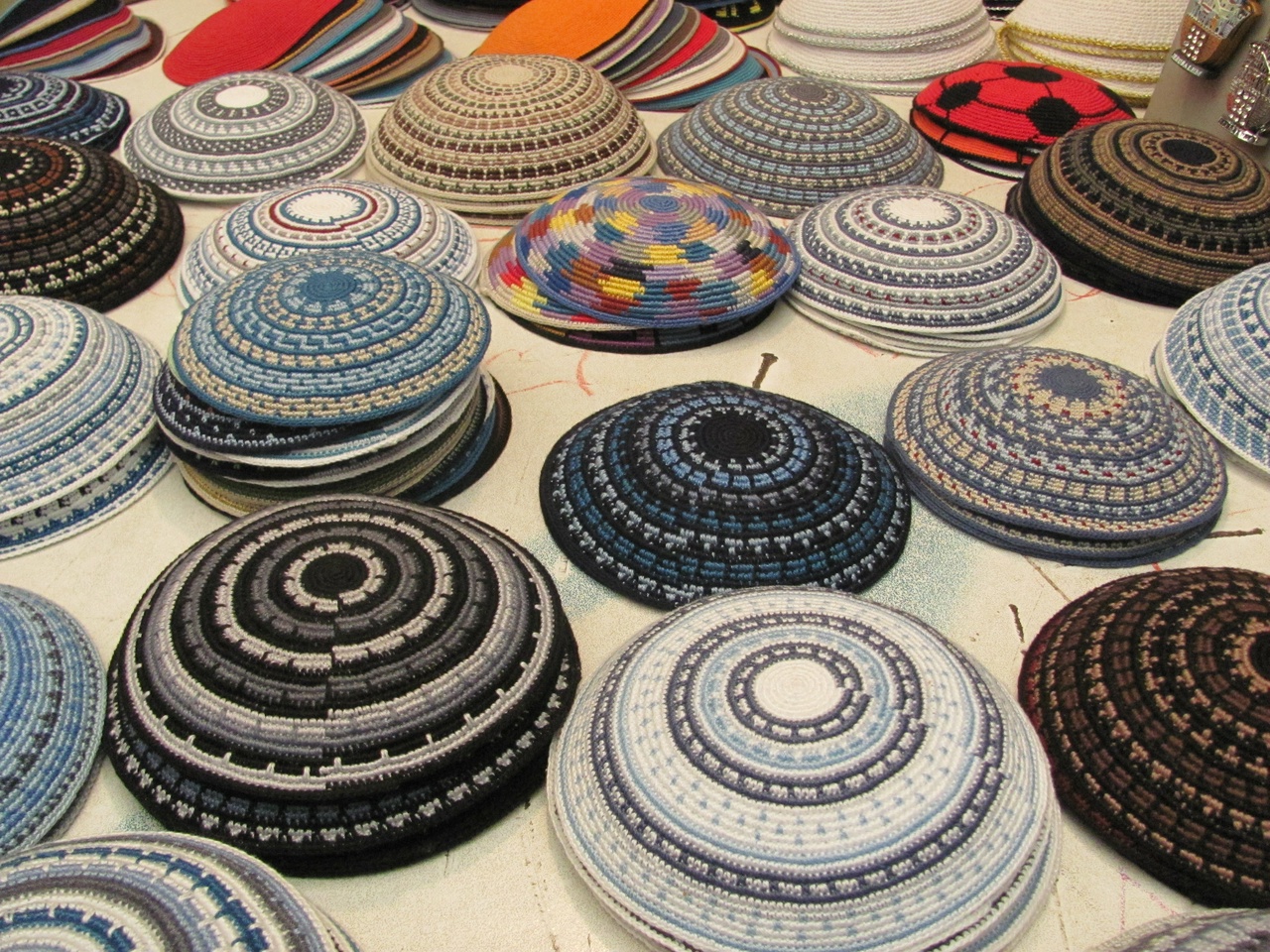“Hey Jew! Yes, You With the Kippa”

Thus far in my life, I am privileged to say that have never felt the need to hide my Jewishness. My regular mode of dress is quite telling: Dark pants, a white shirt, tzitzis and a kippah. If someone was looking to pick a Jew out of a crowd, I’d be a fairly obvious choice.
But the world is getting more and more dangerous for our people, which is why I was tensed up, my heart racing, when I heard a voice behind me shouting “Hey Jew! Yes, You With the Kippa”.
I turned, to see an elderly man sitting on a bench, waving me over. He didn’t look threatening, so I shrugged and walked over.
“You’re Jewish, right?” he asked.
“Yes I am, and I'm proud of it.”
“I’m Jewish too. I saw you with that Yarmulka, and I wanted to tell you that it’s a wonderful thing to see.” He said all of this with his head uncovered.
This was going much better than expected, so I continued the conversation: “Thank you so much. Where are you from?”
“I lived most of my life in Philadelphia, I’m 92 years old today. I don’t see many yarmulkas these days. Most for us have given up wearing them in public – many have given up altogether. The whole world hates us, you know?”
I nodded and waited. He seemed anxious to add something.
Then he pointed upwards, and whispered: “But none of that means anything. He loves us. He’s on our side.”
He smiled and waved me off. “Don’t stop wearing that Yarmulka. Never stop wearing it.”
I smiled back, and continued walking, wondering why Hashem had made it that I should meet with that old Yid that day...
___
After Tisha B’av, Klal Yisrael sighs from collective relief. Haircuts, music, meat and wine are once again part of our lives. But while the halachos of “bein hametzarim” are relieved, the feeling of being squeezed “between the straights” has not dissipated.
Since October 7th, our generation might be able to finally identify with our ancestors who forswore meat, wine and music until the Beis HaMikdash would be rebuild.
We are all well aware that Tisha B’av is still continuing for the hostages and their families. The Mikdash is still burning for so many chayalim whose lives will never be the same again.
But does Hashem really want us to hold off on enjoying His world? And how would that even help Klal Yisrael?
The chronic, persistent stream of negativity, antisemitism and political unrest has become exhausting. So we resort to the only answer we have: put one foot in front of the other, and do the best we can to keep Halacha.
___
But living an exhausted, numb, ritualistic Yiddishkeit is not the value system we aspire to.
The Torah famously tells us this Shabbos: וְאָהַבְתָּ אֵת ה’ אֱלֹקיךָ – You should love Hashem your God. We’re supposed to feel connected to Hashem, not just fumbling through the day, checking off boxes on the Shulchan Aruch’s to-do list.
Of course, there are Jews who are able to love Hashem with all the heart – they’re big tzadikim.
Some have the resources to change the world through their money – בכל מאודך.
Some are able to love him with all their soul – בכל נפשך – which Chazal (ברכות נ”ד) explain – אֲפִלּוּ הוּא נוֹטֵל אֶת נַפְשְׁךָ – even if He is taking your soul from you. This is the obligation to give up our lives for Hashem, His People and His Land. These are our precious Chayalim.
But the Tiferes Shlomo (פ’ נשא) adds that there is relevance in this mitzvah for us as well:
The Torah is instructing us that sometimes Hashem will take away your “soulfulness”, your will and desire. Sometimes, you’ll decide that you want to serve Him, and you’ll be overcome with oppositions and roadblocks. Nevertheless, you should know that even when you feel like a failure, even when everything feels strained, when you’re drained and uninspired, Hashem still wants you to serve Him.
Your Avoda, when you don’t feel like doing anything – that’s also בכל נפשך.
The truth is that we are the only things in all of creation that can push ourselves to do what Hashem wants when we feel lost and confused.
Everything else in the universe is programed to perform Ratzon Hashem at all times. They don’t have the challenges of feeling overwhelmed; they never need to juggle conflicting priorities. We are the only ones who can find Hashem in these emotionally fraught places.
___
Maybe that’s what the holy Jew on the bench was telling us.
The world is taking their Yarmulka off because they’re afraid of the fight. But you should keep on wearing it... but don’t do it just because that’s how you’ve always dressed.
Wear it despite the hate. Wear it despite the pressure to avoid it. Wear it because He believes in you, even on the days that you don’t believe in yourself. Wear it because Hashem loves you; and because you want to love Him too.
___
Subscribe to this blog here👇.
YouTube: www.youtube.com/raelblum Facebook: facebook.com/rael.blumenthal